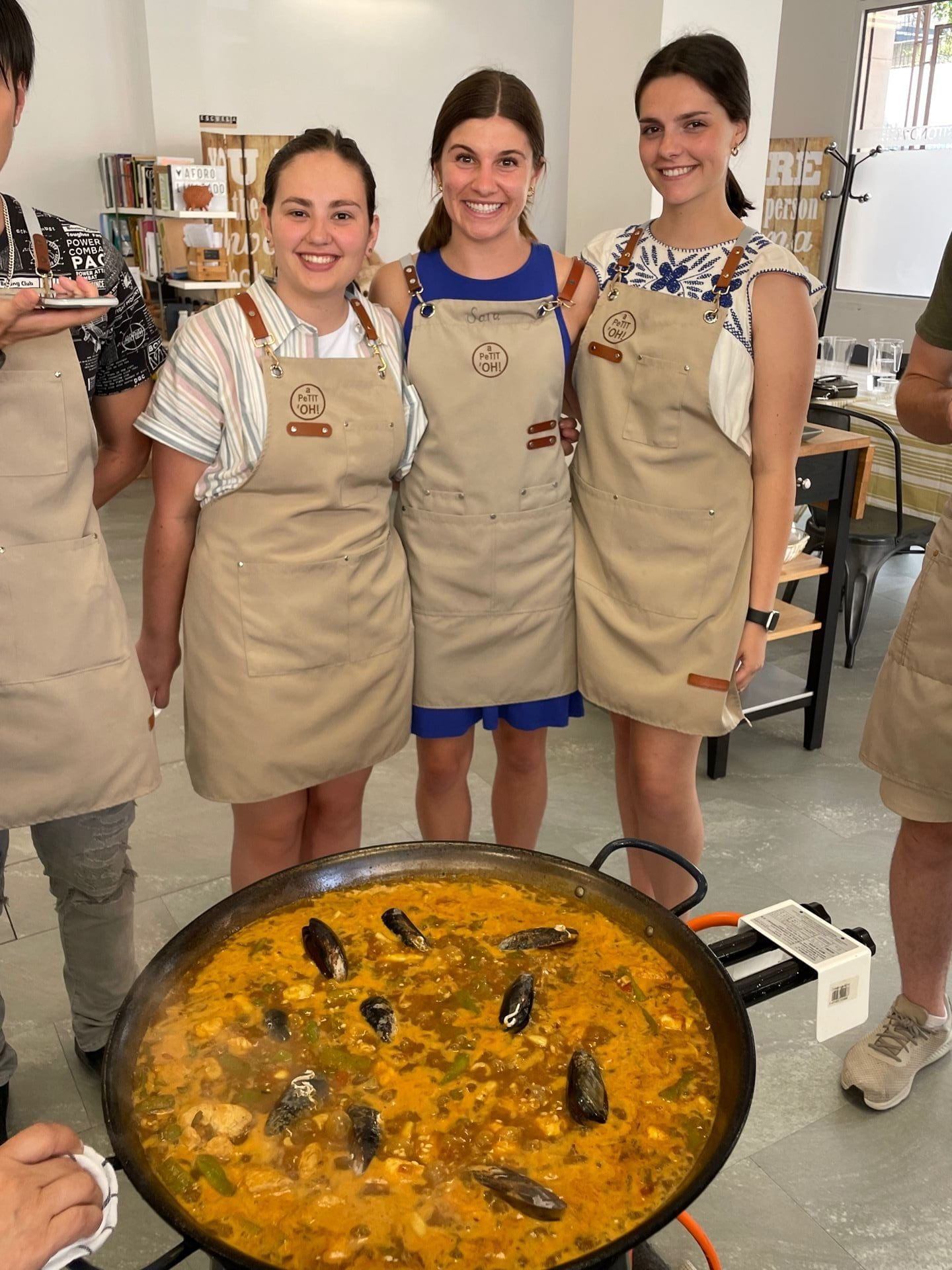Caroline Kilo is an honors nursing major and Spanish minor from St. Louis, Missouri, who studied abroad in Madrid this past summer. While abroad, Caroline found the powerful impact on learning that comes from being completely immersed in another language and culture.
As I boarded my flight back to the United States after such an incredible month in Spain, I knew that I would be leaving a piece of my heart behind. After studying abroad last summer in Puebla, Mexico on the UARK Faculty Led Spanish Learning and Service Learning Program, I knew that I wanted to study abroad again. This time I chose to study in a Spanish-speaking country outside of Latin America through an external study abroad company. Although I really liked being on a UARK Faculty Led program with everything nicely planned and an extra sense of security with a UARK faculty member in attendance, being on a trip through an external provider made me gain a stronger sense of independence and allowed us more freedom to choose our weekly activities and weekend excursions.
We were enrolled in two intensive Spanish classes at Universidad Nebrija in Madrid. I chose Spanish for Health and Advanced Conversation & Composition as my classes, and I truly enjoyed them. My teachers were amazing, we had small class sizes, and each class met for 2 hours every week day. My Spanish for Health class taught me essential healthcare vocabulary and cultural differences between the healthcare systems. This class has helped me take a step towards achieving my goal of becoming a bilingual nurse. My Conversation & Composition class greatly improved my speaking fluency and writing abilities. Having real midterms, presentations, and finals made these classes more time consuming than those from my study abroad trip last summer. Even with demanding classes, we still had ample time for exploring, participating in cultural activities, and going on weekend trips. My favorite cultural activities included learning how to cook traditional Spanish tapas, watching a flamenco show, going to a bullfight, seeing the Mamma Mia musical in Spanish, biking through Casa de Campo, rowing boats at Retiro Park, and taking day trips to Toledo and Aranjuez.
Every weekend, we visited different cities in Spain including Málaga, Valencia, and Alicante. In Málaga, we went to the beach, explored the historic center, walked around the port, ate dinner at a rooftop restaurant with the most beautiful view, and went on a sunset catamaran cruise. In Valencia, we paddle boarded on the ocean, went on a walking tour of the city, helped make Paella at a traditional restaurant, swam at the beach, and got to see the City of Arts and Sciences buildings. For our last weekend, we unknowingly booked a trip to Alicante during Las Hogueras de San Juan, which is their largest festival of the year. It was absolutely amazing to see this festival and all of its traditions. Huge, elaborate statues made of wood and paper mache go on display around the city, and then they’re set on fire to create fireworks and giant bonfires. As the fire department sprays water through the fire hoses at the fires to control them, everyone cheers for the firefighters to spray the crowd. Along with the many activities of the festival, we went to the beach, hiked up to the Castillo de Santa Bárbara for awesome panoramic views of the city, and shopped at the street market on the alley of palm trees.
One of the most educational parts of this trip was being immersed in the culture and learning about the numerous differences between the United States, Spain, and Latin America. I lived with a host mother, Rosa, who only spoke Spanish, and it was fascinating to learn so much from her. Rosa ate dinner with us every evening and would chat with us about our days and what we were learning. One of the hardest transitions for us was the lack of air conditioning and free cold water like we have in the US. Also, Spain uses the “vosotros” conjugation while speaking Spanish, and uses a “Th” sound for the letters c and z in certain words. For example, “gracias” and “Ibiza” would be pronounced “grathias” and “Ibitha”.
Overall, I could not be more thankful for this wonderful time spent in Spain. I am so grateful to have had the opportunity to study abroad twice throughout my time at the University of Arkansas. Being able to learn from and compare two completely different Spanish-speaking countries has been eye-opening. I would definitely recommend this program to anyone wanting to learn more about the Spanish language and culture!



